PC Gamer's biggest hardware stories of 2024: Elon Musk, the rise and rise of AI, brilliant builds, the humbling of big tech giants, orb pondering aplenty, and much more
Looking back at another year of head-turning headlines, as decided by you.
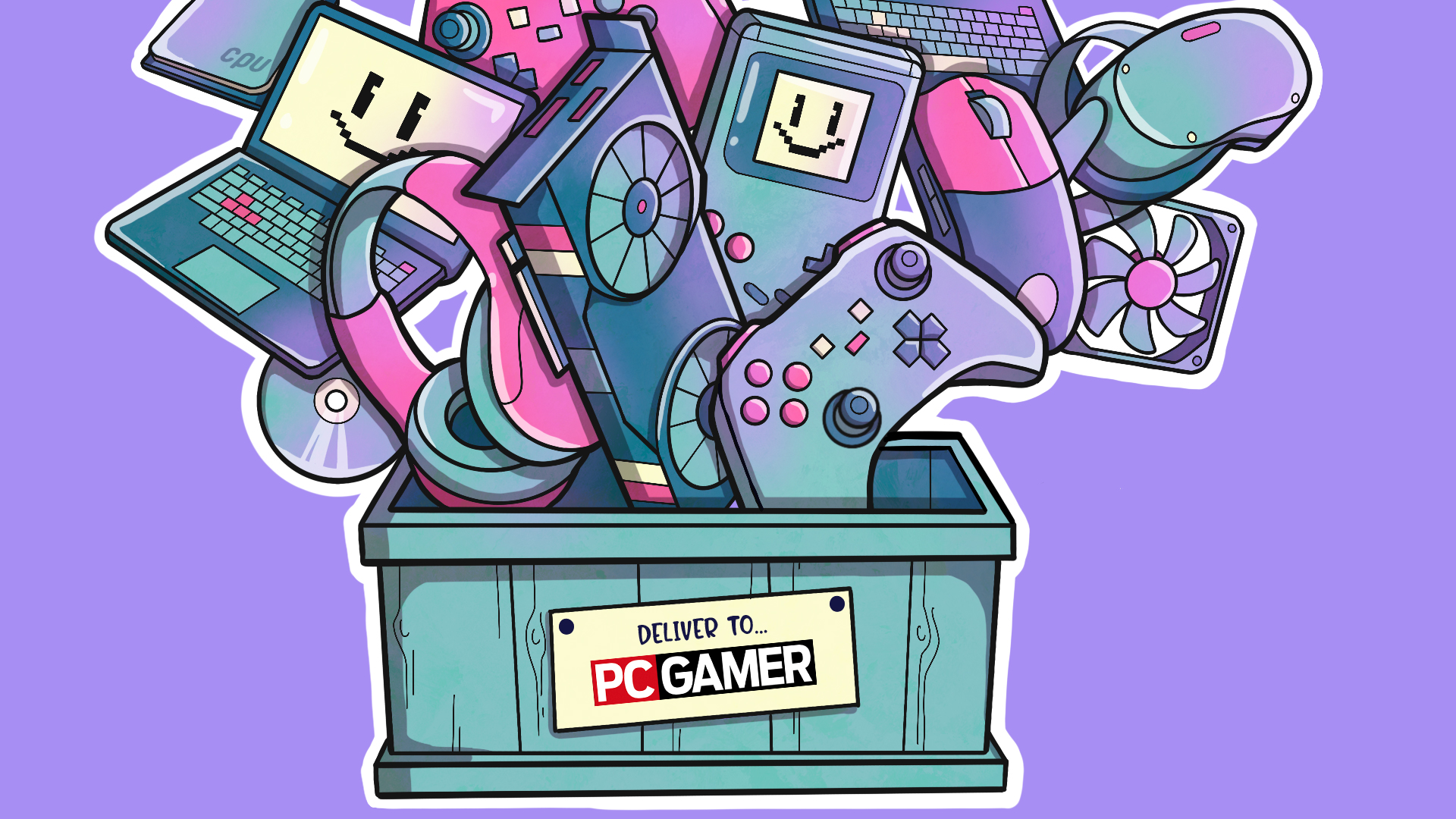
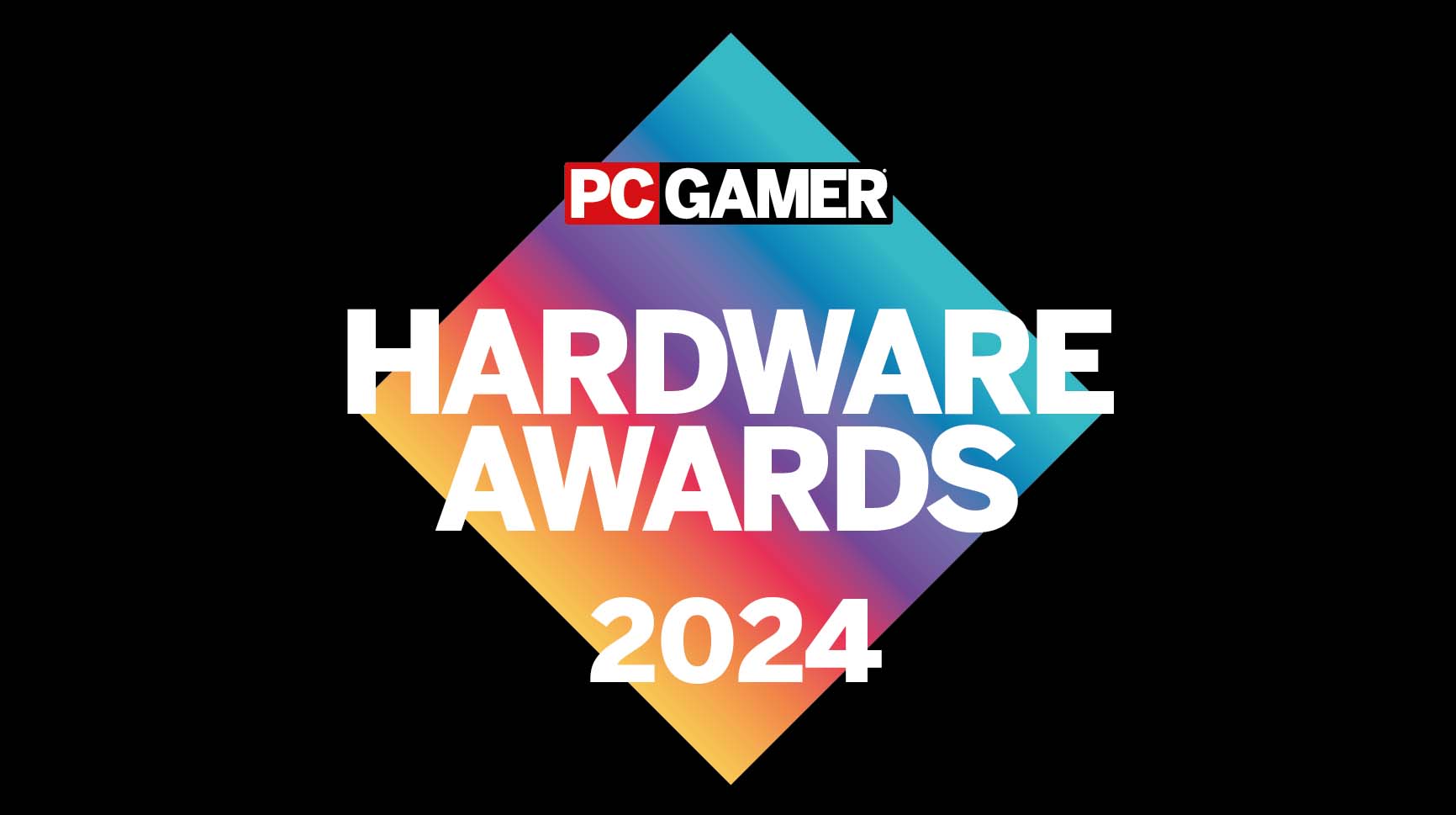
Check out more of the year's best tech in our PC Gamer Hardware Awards 2024 coverage.
It's been one more full revolution around the sun and—guess what—we're back here again. As we survey a year of ups and downs, it'd be impossible to recount every beat. Instead, we've let you call the shots. Below, we take a look back at the stories that piqued your interest, the headlines you just had to share, and wonder just where the time went over the last 12 months.
While I try in vain to avoid confronting the merciless passage of time, take a peep below at the biggest hardware stories of 2024.
News from January to March
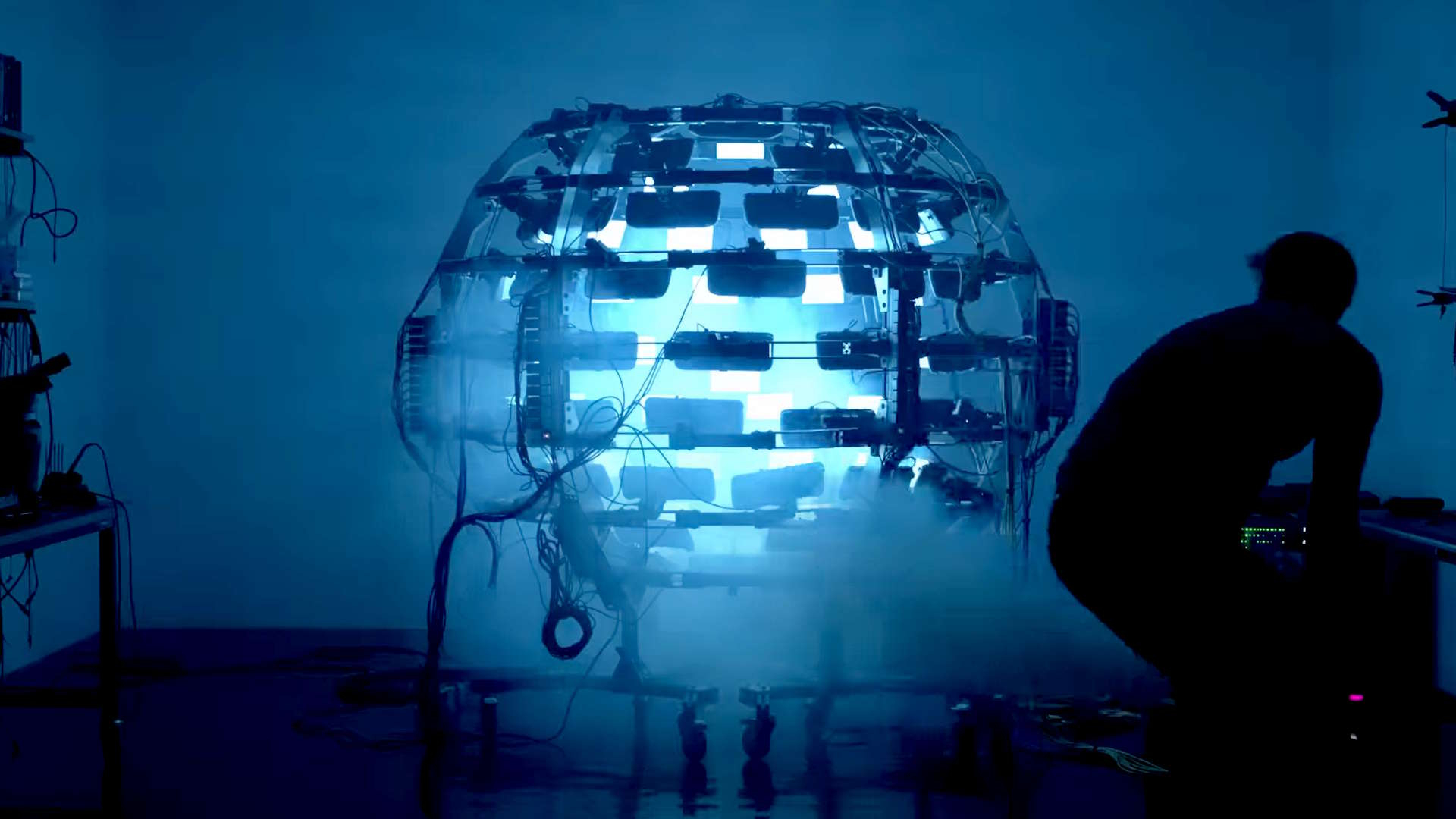
The top stories:
- Elon Musk claims Tesla could build a silicon foundry and make its own chips, but says 'I sure hope we don’t have to'
- Microsoft's current OS has been shrunk to a ridiculous 100MB in size, but only by getting rid of windows from Windows
- Researchers have developed a Very Big Disc™ that can store up to 200 terabytes of data and may represent a return to optical media for long term storage
- The Chinese government is phasing out Intel and AMD CPUs and Microsoft's Windows OS because they don't fit its new 'safe and reliable' guidelines
- Valve explains how it built an orb out of Steam Deck OLED prototypes rather than making Half-Life 3, vowing 'we will construct an orb at any opportunity'
- The president of Sony Honda is allowed to drive an electric car on-stage with a DualSense yet I'm not allowed to play games while I drive. Typical
- Intel CEO admits 'I've bet the whole company on 18A'
- Meta's experimental 'neural' wristband controller will be a real product that lets you type just by thinking because Zuck doesn't want 'a chip that you jack into your brain'
- Sony's reportedly stopped making any more PS VR2 headsets until it can figure out a way of shifting a pile of unsold VR goggles
Pursuing self-improvement is such a January cliche; you don't need a new year to herald a whole new you. Still, that didn't stop NTDEV from shrinking down Windows 11 to the slimmer, trimmer tune of 100 MB. Granted, as Nick notes in his piece, such a light install package means it's basically Windows without the all important windows, making one wonder if this isn't a simple case of 'just because you can, doesn't mean you should.' Along similar lines, Sony capped off their CES 2024 presentation by steering a car on stage with a DualSense controller, or at least conjured the illusion.
Talking about turning circles, February brought us big discs—specifically, the news that researchers at the University of Shanghai had crafted optical media that can store a whopping 200 TB. When it comes to the file storage wars, these surprisingly stable, long-lasting discs spin to win.
Alright, to save us going around in circles, I'll dispense with the puns. February also saw a surprising amount of candor from big tech CEOs. First, Mark Zuckerberg threw Meta's wristband into the neural interface ring, alongside the two cents that the company is exploring this route because he "wouldn't want to use version one of [a chip you jack into your brain.]" On that point at least, we can agree.
Then, Intel CEO Pat Gelsinger came right out and said, "I’ve bet the whole company on 18A." It's arguably not been Intel's year, and though the company more recently stated, "18A is powered on, healthy and yielding well," a piece from South Korean outlet Chosun Daily suggests the bigger picture may not be so straightforward, claiming the yields are only 10%. Though Gelsinger has since departed the company, he took to X to argue this wasn't an appropriate way to frame the subject, writing, "Anyone using % yield as a metric for semiconductor health [...] doesn't understand semiconductor yield."
The biggest gaming news, reviews and hardware deals
Keep up to date with the most important stories and the best deals, as picked by the PC Gamer team.
Putting a dampener on such fighting spirit, in March the Chinese government announced plans to ban the use of both Intel and AMD chips in computers used by "State-owned enterprises" amid safety and privacy concerns. Talk about never catching a break.
Now, must we discuss Musk? As far as March is concerned, we must. After literally just covering how hard the chip game is, it's perhaps understandable why the Tesla CEO is reluctant to wade in—though he was quick to assure that Tesla could totally do it, guys. Tesla, the company promising big with self-driving cars that may never materialise, that Tesla? Uh-huh. The year's pendulum will swing back to Musk in due time, so let's get on with the rest of March.
Valve's contemplation of the Steam Deck OLED orb was a brief bright spot (never believe me when I say I'm done with puns). But another story that turned heads in March was the broken promise of Sony's PS VR2. An expensive niche on top of an already pricey console, it's perhaps no wonder Sony has struggled to shift their VR headsets. As you saw, they're not the only ones, ahem, taking stock either.
News from April to June
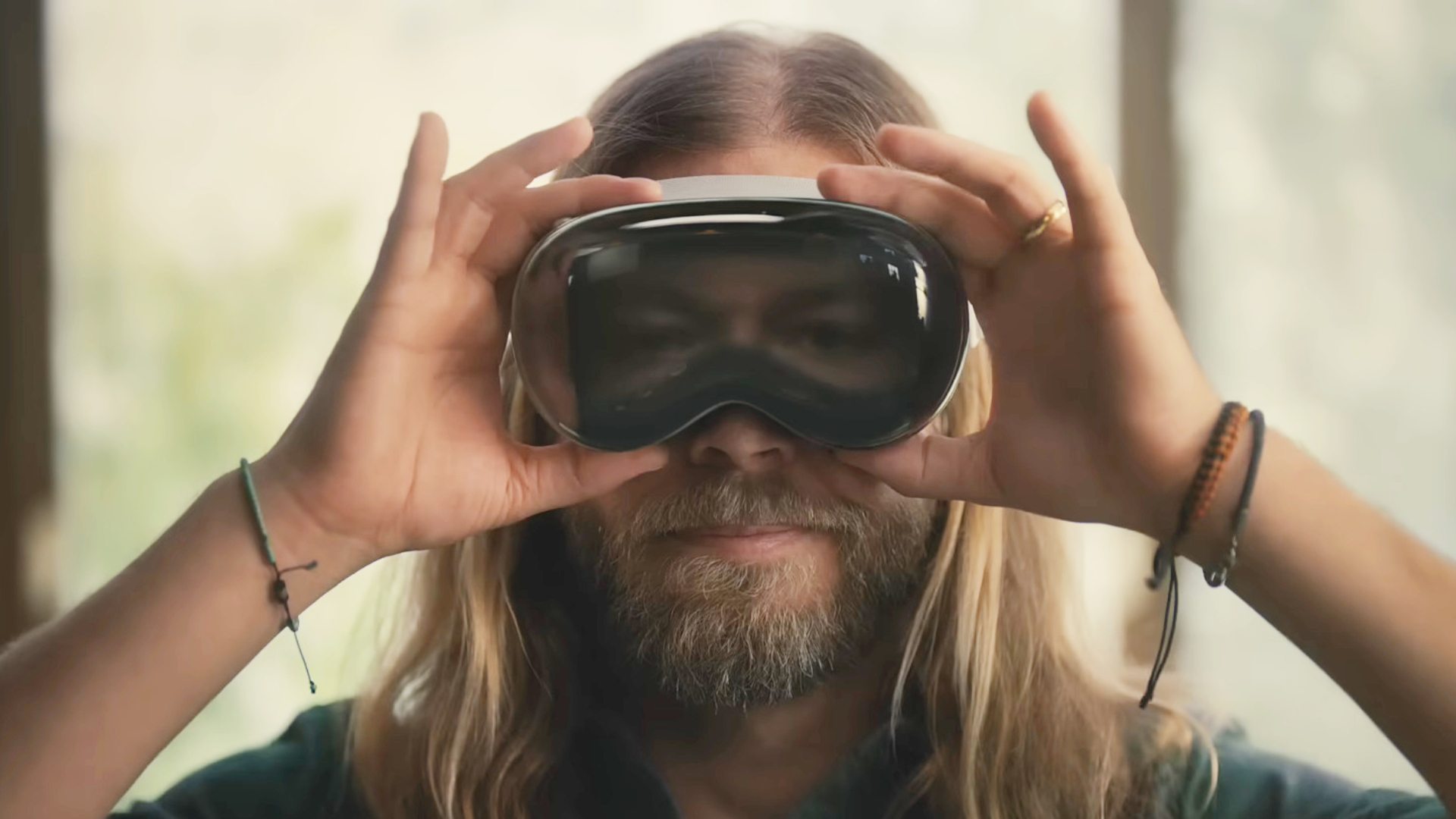
The top stories:
- An AI-controlled F16 has performed its first ever dogfight with a human pilot, coming within 2,000 feet of each other at 1,200 miles per hour
- Is Apple feeling OK? Reports indicate it's suspending work on the Vision Pro 2 to focus on making—wait for it—a cheaper version
- Having built 500+ PCs in my time I can say this with confidence: Building is fun and rewarding but ironing out those inevitable BIOS, CPU, memory kinks is unbearable
- Apple reportedly slashes Vision Pro headset production and cancels updated headset as sales tank in the US
- Self-taught hardware engineer discovers that GPUs really are ridiculously complex and hard to design after all
- US Commerce Secretary says if China seized TSMC it would be 'absolutely devastating' to the US economy, as it buys 92% of its cutting-edge chips from the Taiwanese manufacturer
- Intel claims its optical interconnect chiplet technology is 'like going from using horse-drawn carriages to using cars and trucks'
- Avengers, assemble—Google, Intel, Microsoft, AMD and more team up to develop an interconnect standard to rival Nvidia's NVLink
- A Windows XP machine's life expectancy in 2024 seems to be about 10 minutes before even just an idle net connection renders it a trojan-riddled zombie PC
Case in point as we get to April, Apple pumped the brakes on all things Vision Pro in an alleged bid to course correct from overprojected demand. I can't imagine reports about the $3,500 headset's lacking build quality helped either. Pressing the pause button on production sounds almost sensible—psyche! In June, rumours began to surface that Apple were actually instead shifting gears to create a cheaper version of the mixed reality goggles. Doesn't that just make your head spin?
Also making me queasy in April was the news of AI's potential military applications—not so much gently dizzying as violent whiplash, I know. In a 'test' dogfight, an AI-controlled F16 fighter jet went head to head with a human and, regardless of the actual victor in this demonstration, it doesn't feel like there are any winners here.
Right, let me get off my soapbox, and instead dive into some PC guts. Building your own desktop tower offers many trials and tribulations, as Nick's in-depth feature goes to show. Picked up two fans because you thought they'd fit in your case, only to realise you forgot to factor in the radiator? Mate, we've all been there, and there's no shame in a bit of on-the-fly problem solving as even the most experienced PC tinkerer will tell you.
You know what else is tricky? Building a GPU from scratch—the more you know. As interesting as self-taught hardware engineer Adam Majmudar's pursuit of hardware knowledge is, this is a back-to-basics approach that's definitely not for the faint of heart.
Later that same month, there was also the pulse-dropping claim from US Commerce Secretary Gina Raimondo that it would be "absolutely devastating" if, hypothetically speaking, TSMC semiconductor foundry was to be seized by antagonistic forces. She elaborates, "Right now, the United States buys 92% of its leading edge chips from TSMC in Taiwan." As if I didn't need another dreaded hypothetical to keep me up at night.
From worst case scenarios to straight up facts, no hardware is safe from hackers—least of all a virtual machine instance of Windows XP in this here year of our gourd, 2024. Without even clicking on an ill-advised link, a YouTuber merely left the internet-connected virtual machine unattended for 10 minutes, only to find a suspicious process running in Task Manager. After catching a whiff of Windows XP's blood in the water, the virtual machine became a feeding frenzy for hackers.
Anyway, speaking of mosh pits I wouldn't want to be caught in the middle of, big tech is forming a megazord to beat Nvidia at its own AI game. AMD, Microsoft, Google, Meta, Intel, Hewlett-Packard, Cisco, and Broadcom are joining forces to forge a new interconnect standard that can compete with Nvidia's NVLink interconnect tech for AI accelerator chips. What I wouldn't give for some mighty morphin' folks with attitude right about now…however, we've got a fair few AI stories to get through still, so I'll check mine for the time being.
To badly paraphrase a certain memeified boyband song, that was definitely May. The hits continued into June, with Intel coming in swinging with the claim that their optical interconnect chiplet technology is such a leap that it's like going from horse-drawn carriages to cars and trucks. It's not been the company's year, but you could say that Intel is very much still in the running.
News from July to September
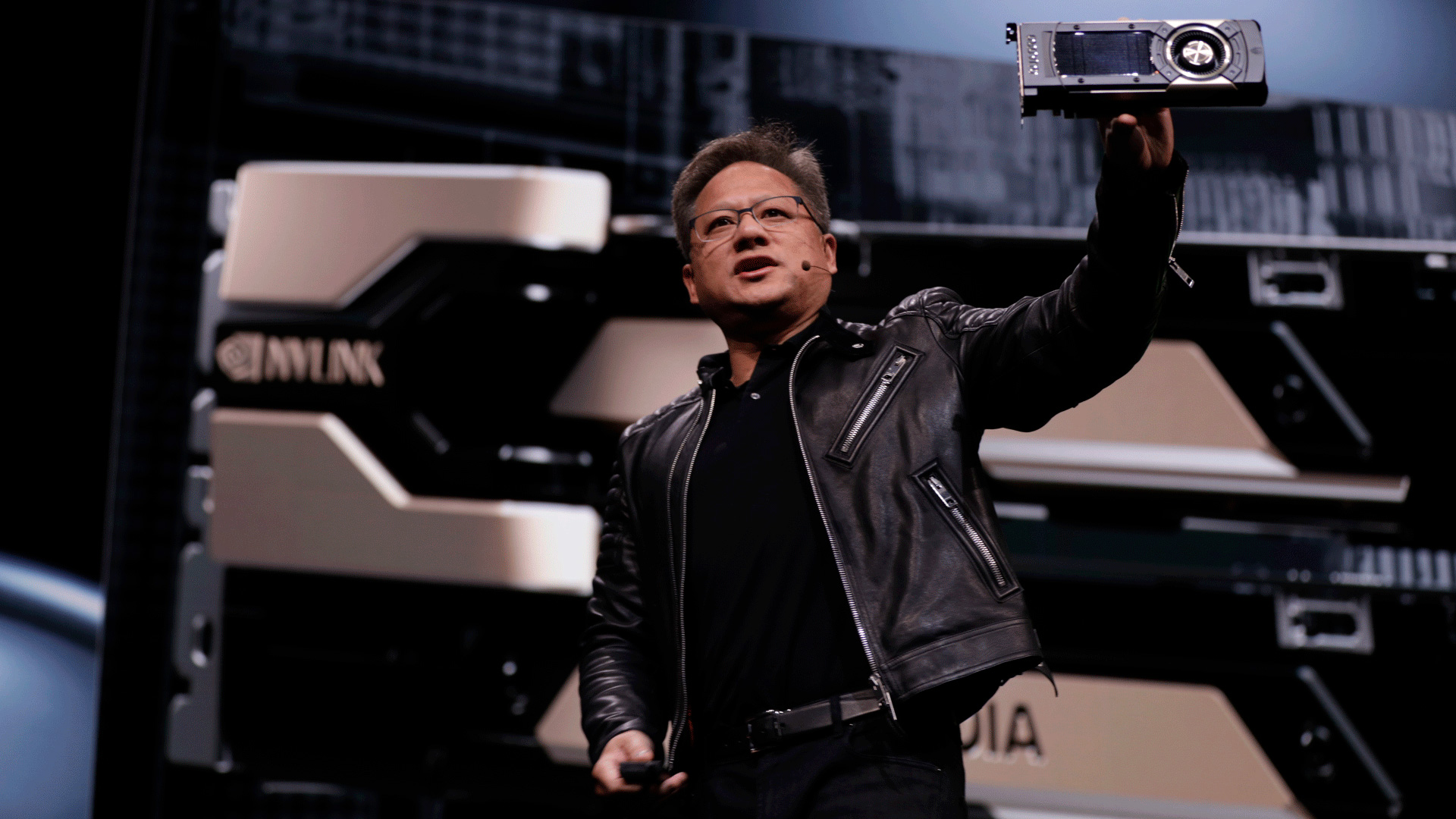
The top stories:
- 8 years after declaring it took 'courage' to remove the iPhone's headphone jack, Apple has finally decided buttons and ports are cool again
- Internet speed record of 402,000,000 Mbps achieved using standard optic fibre cabling, fast enough to download Baldur's Gate 3 in less than four milliseconds
- 'I'm still amazed that it all came together and actually works': YouTuber spends 14 months building a glorious gaming laptop from desktop parts
- Las Vegas' dystopia-sphere, powered by 150 Nvidia GPUs and drawing up to 28,000,000 watts, is both a testament to the hubris of humanity and an admittedly impressive technical feat
- This 3D printed laser chip-hacking device uses a $20 laser pointer, costs $500 to build, and was developed so that 'people can do this in their homes'
- Logitech's 'forever mouse' could mean peripherals go the way of coffee beans, TVs, and printer ink by pushing a subscription
- 'We can't do computer graphics anymore without artificial intelligence. We compute one pixel, we infer the other 32': Jensen thinks AI is integral to next-gen graphics tech
- If you put hot dogs and pickles against an AM radio tower, they act as speakers. Also, don't do that
- Can my 14-year-old gaming PC, loaded with the one-time most powerful graphics card in the world, still deliver a good PC gaming experience in 2024?
July began with a hopeful vision of the future for anyone who has ever had to contend with a miserable download speed. Engineers at Japan's National Institute of Information and Communications Technology achieved a data transmission speed of 402 TBps. That's like downloading Baldur's Gate 3 quicker than you can mentally conjure that pale elf's visage.
Don't jump for joy just yet, Astarion fans though; while the test didn't use much specialised equipment—the researchers were able to achieve that impressive speed over 50 km of the same optical fibre you could pick up yourself—even a top of the line rig would still present a serious hardware bottleneck. Guess we'll just have to make do with pondering Las Vegas' massive Nvidia-powered orb instead.
The orb alongside the ever encroaching threat of subscription-based hardware hardly leaves one glowingly optimistic about the future. But it wasn't all dystopic deployment of tech this year. For instance, our readers loved this story about an open source, 3D printable laser-hacking tool, with August offering plenty more weird and wonderful builds to boot.
You know me, I love a questionable laptop build, and judging by the attention this YouTuber's attempt to forge one from desktop parts got, so do you. The 14-month endeavour proved a project absolutely not for less-than-confident tinkerers, requiring motherboard desoldering to save space. Still, one can't help but be a little inspired by such determination. Inspiration can take many forms, though I feel like the idea to use hot dogs and pickles as flaming speakers is a fairly singular vision, to say nothing of actually putting that incendiary idea to the test.
From small creator creativity, to big tech backtracking, remember when Apple removed the headphone jack from the iPhone 7? Remember those ridiculous USB-C to aux adapters? Well, after eight years, the jack is back for the iPhone 16—and our most widely read hardware story from September.
Perhaps pointedly, I'm following up with another head-turning headline from when Nvidia CEO Jensen Huang claimed, "We can't do computer graphics anymore without artificial intelligence." Okay, in the context of graphical gains, perhaps I'm being needlessly grumpy about AI—computing one pixel and inferring the other 32 with AI upscaling is definitely a big win when it comes to limiting the load on your GPU.
This wasn't the only September story that made us all think about how far PC gaming has come either. Case in point, the Sapphire ATI Radeon HD 5970 4GB dual-GPU graphics card was an impressive bit of kit once upon a time in the distant realm of 2009. It would appear yesteryear's hardware still has a surprising amount to offer now in 2024 if our reader's response to Rob's feature is anything to go by.
News from October to December

The top stories:
- Elon Musk shows off bartending robots at a recent Tesla event, but some attendees say the automatons were being controlled by people
- Google to sell Chrome AND be banned from re-entering the browser market for five years, recommends US Department of Justice
- 'I was hopeful': one lucky shopper ordered an RTX 4070 Super from Amazon for $40 and it wasn't just a rock in a box
- Couple spends almost $1,000,000 building a family home 'optimized for LAN parties,' and the result is definitely living that dream
- 'We had a very big debate, and I showed him. He was silent. He doesn't know how to make a battery': The founder of the world's biggest battery company apparently had a lesson or two to give Elon Musk
- The official Nintendo Museum appears to be emulating SNES games on a Windows PC, which is slightly embarrassing
- Windows 11 24H2 is finally here and Microsoft's calling it a 'full OS swap', it's just a shame the new Windows update still has Recall
- Break out the world's tiniest violin: PS5 Pro scalpers are having a tough time reselling units because it's in stock basically everywhere
- As Microsoft rolls out its Windows 11 24H2 update, owners of certain Western Digital SSDs have been greeted with constant Blue Screens of Death
October offered plenty more servings of humble pie. First, eagle-eyed visitors to the official Nintendo museum noted that interactive SNES game exhibits may be being emulated on PC. Considering how hard Nintendo tends to go after developers that try to emulate their hardware, this was at best a hypocritical look.
Then, it was Microsoft's turn. When the Windows 11 24H2 update rolled out earlier this year, Jacob was far from a fan of Recall's inclusion just for a start. Then, the blue screens began for those using certain Western Digital SSDs, and I also wrote about a startling audio bug resulting from the update. The issues continued past October, with Microsoft electing to halt the update's rollout on machines with certain Ubisoft titles installed. As of December, Ubisoft has since fixed some of the issues affecting players of Avatar: Frontiers of Pandora and Star Wars Outlaws—though problems may still persist if you have either Assassin's Creed Odyssey, Valhalla, or Origins installed.
Our most read story in October by far was about Elon Musk and his really not that impressive robots. The hardware horde was unveiled at Tesla's We, Robot event, though even at the time these robos were widely suspected to in fact be controlled by boring old humans—how very Wizard of Oz. Speaking of men behind the curtain, November offered another exposing story when Elon Musk got into it with Robin Zeng, the founder of the biggest EV battery manufacturer in the world CATL. Reflecting on an earlier conversation about the Cybertruck's cylindrical battery, Zeng said, "We had a very big debate, and I showed him. He was silent. He doesn't know how to make a battery." 'Humbling,' perhaps doesn't even begin to cover it.
But the year wasn't yet done cutting giants of tech down to size, with the US Department of Justice filing a number of recommendations for remedying Google's monopoly over search. These included but were not limited to the proposed selling off of Chrome and a five year ban from re-entering the browser arena. These suggested remedies could have far-reaching repercussions, but until a judge rules on which courses of action to take some time next year, we can't yet say for certain how the chips will fall.
But don't you worry—there was still plenty of room for a little schadenfreude in November, as it turns out PS5 Pro scalpers are struggling to shift their hastily bought hardware. Hear that? It's the tiniest violin you ever did hear.
Alright, let's end this retrospective on the stories we can all agree are wins, like this amazing family home "optimized for LAN parties." Costing in the region of a seven-figure sum, Kenton Varda and Jade Wang "built the house from scratch starting from an empty lot," and the project's final form really is a thing to behold (in fact, hundreds of thousands of readers did just that).
With the pipedream of one's perfect PC gaming paradise in our rearview mirror, let's close out our look-back on something a little more achievable: a good deal on a graphics card. On very rare occasions, a cheap card on Amazon isn't too good to be true as this lucky Reddit user picked up a RTX 4070 Super for $40. Unlike the contents of that box, we can all agree this story rocks.

Jess has been writing about games for over ten years, spending the last seven working on print publications PLAY and Official PlayStation Magazine. When she’s not writing about all things hardware here, she’s getting cosy with a horror classic, ranting about a cult hit to a captive audience, or tinkering with some tabletop nonsense.

